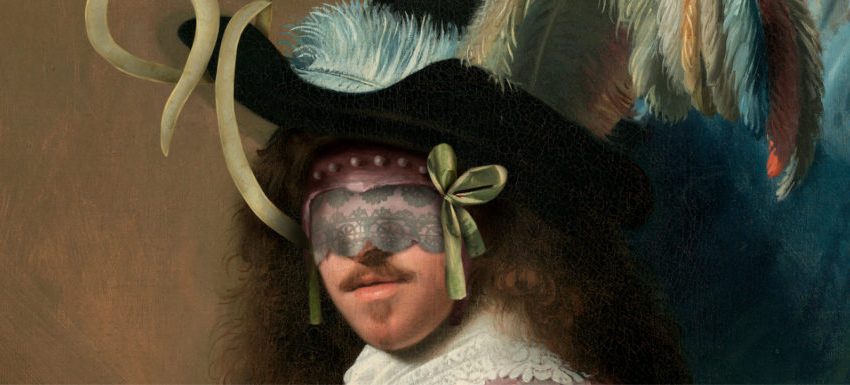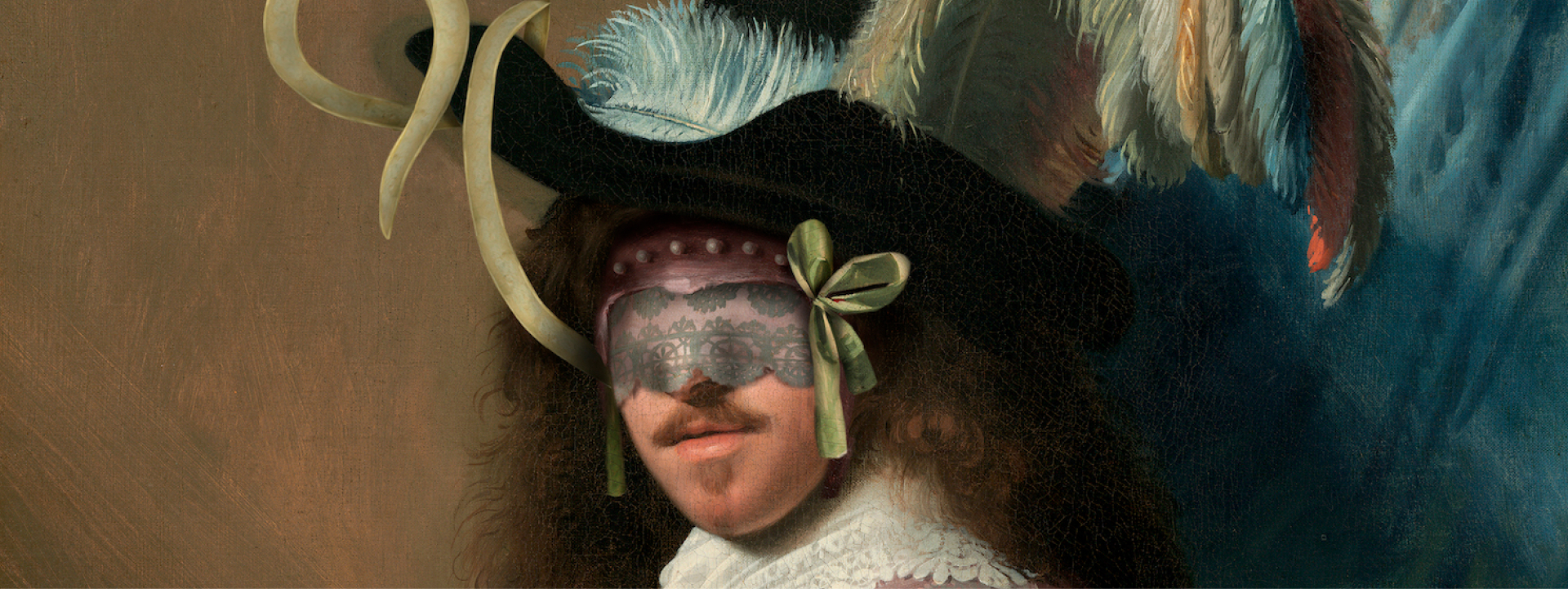I originally come from a very, very small town in the west of Germany. Growing up in such a rural area and coming from a working-class family with no ties to art at all, I still find myself surprised that I wanted to study art, and did so despite many challenges.
For my studies, I moved to Düsseldorf to study at the famous art academy there. Düsseldorf is still in the west of Germany, but a bit bigger (and with a big river, which I love). Well, here I stayed. So, it seems I like it.
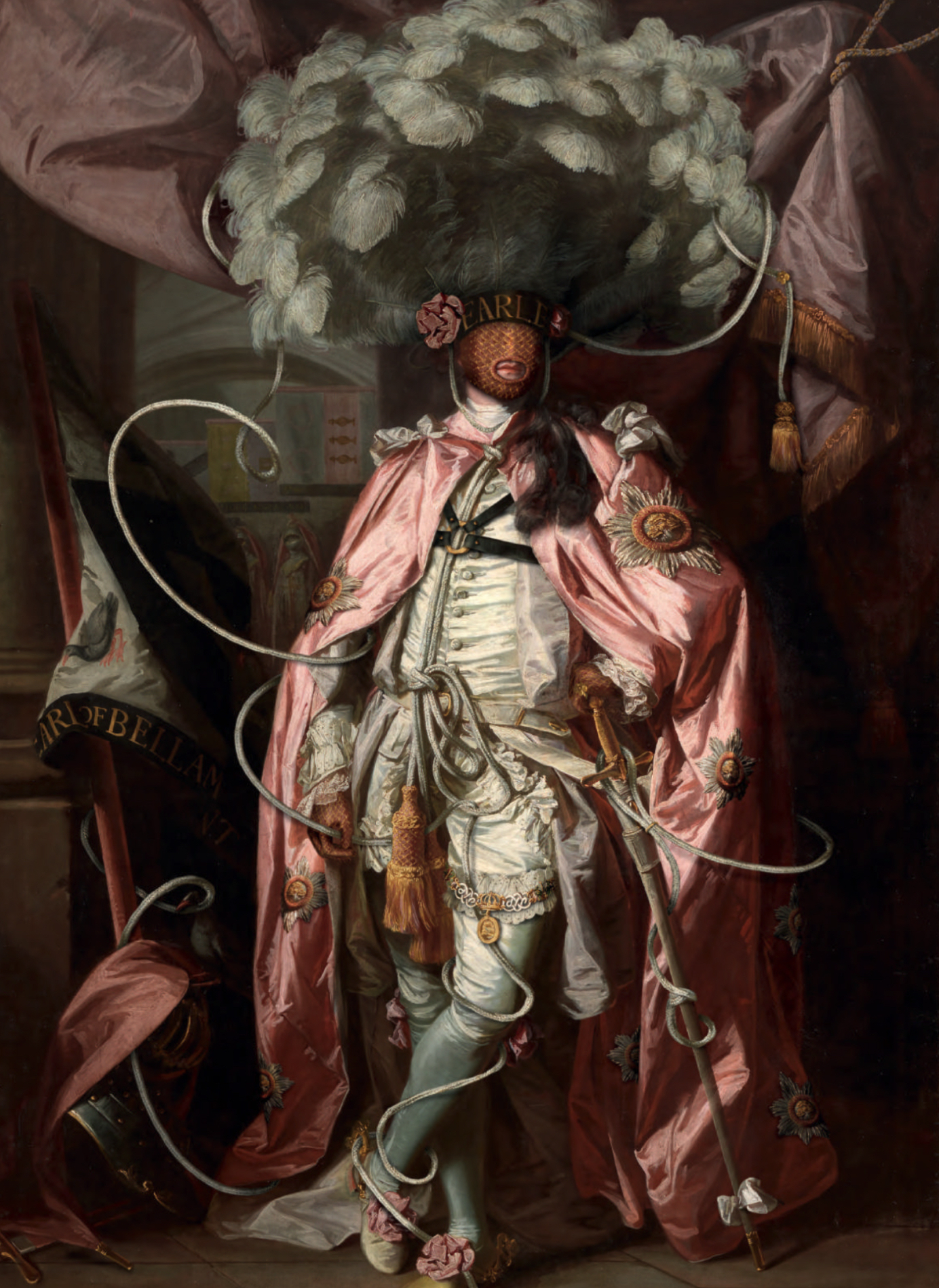
Can you tell us about your background and what lead you down the path to becoming an artist and ultimately experimenting with NFTs?
Being classically educated, in a time before the internet, there was nothing in my background to suggest that I would have anything to do with digital arts. But I very quickly saw the possibilities that new technologies opened up for my art, and became insatiably curious. My relationship with technology has always been one of self-discovery and has always focused on how I could use said technology to express myself more clearly through my art.
I’m fascinated by the concept and future possibilities of NFTs for artists, collectors, and institutions. The ability for artists and collectors to connect, the use of digital provenance, and the embracing of blockchain technology as part of our future are all terribly exciting. I do find it important though that I use tools, like technology, only in harmony with my artistic ideals. This way, the tech doesn’t overshadow the art.
Tell us a bit about your Hidden Portraits
I feel very fortunate that so many people have connected with these portraits. They were originally a side project that began more than 10 years ago. My Hidden Portraits are photo manipulations of historical portraits from the 15th-19th centuries.
For me, each portrait represents a very personal relationship – a three-way conversation if you will, between the sitter, the painter, and myself. Sometimes these conversations have lasted years before the three of us have agreed on my intervention. My close friends can even surmise from my work how I’m doing emotionally, and perhaps what was going on in my life at the time I made a particular portrait. My portraits accompany me and mirror my own life – I love that. Seeing them all together in an exhibition is like seeing a room full of friends.
Before I begin the photo-manipulation stage of a Hidden Portrait, I have conducted extensive research on the social codes and clothing of the period, the sitter’s story if they are known, the painter of course, and anything else that will illuminate the context of the original portrait. I have a deep respect for historical portraits and the artists who created them.
Everything you see in my Hidden Portraits is from the original. Nothing from the outside is ever added. To make the Hidden Portraits seem plausible, and since I am also a painter, I work to make my digital modifications credibly blend with the original artwork. In this way, the originals’ aura is preserved even in my newer and more contemporary version. For example, when I modify a dress on a painting, I’m not modifying it from the perspective of photographic reality, but from a painterly reality. There is actually a difference. In fact, I taught myself image editing exactly for this purpose. I use a lot of tools probably quite unconventionally. It helps that I know, or at least have an idea of how a painter would paint details like my [digital] interventions. Once I’ve decided on the general concept, an incredible amount of detailed work follows – which can take forever. Sometimes I move hundreds of pearls individually or isolate and recombine individual brushstrokes. It often feels like I’m painting myself, but other times I think I’m just crazy because of the amount of effort involved.
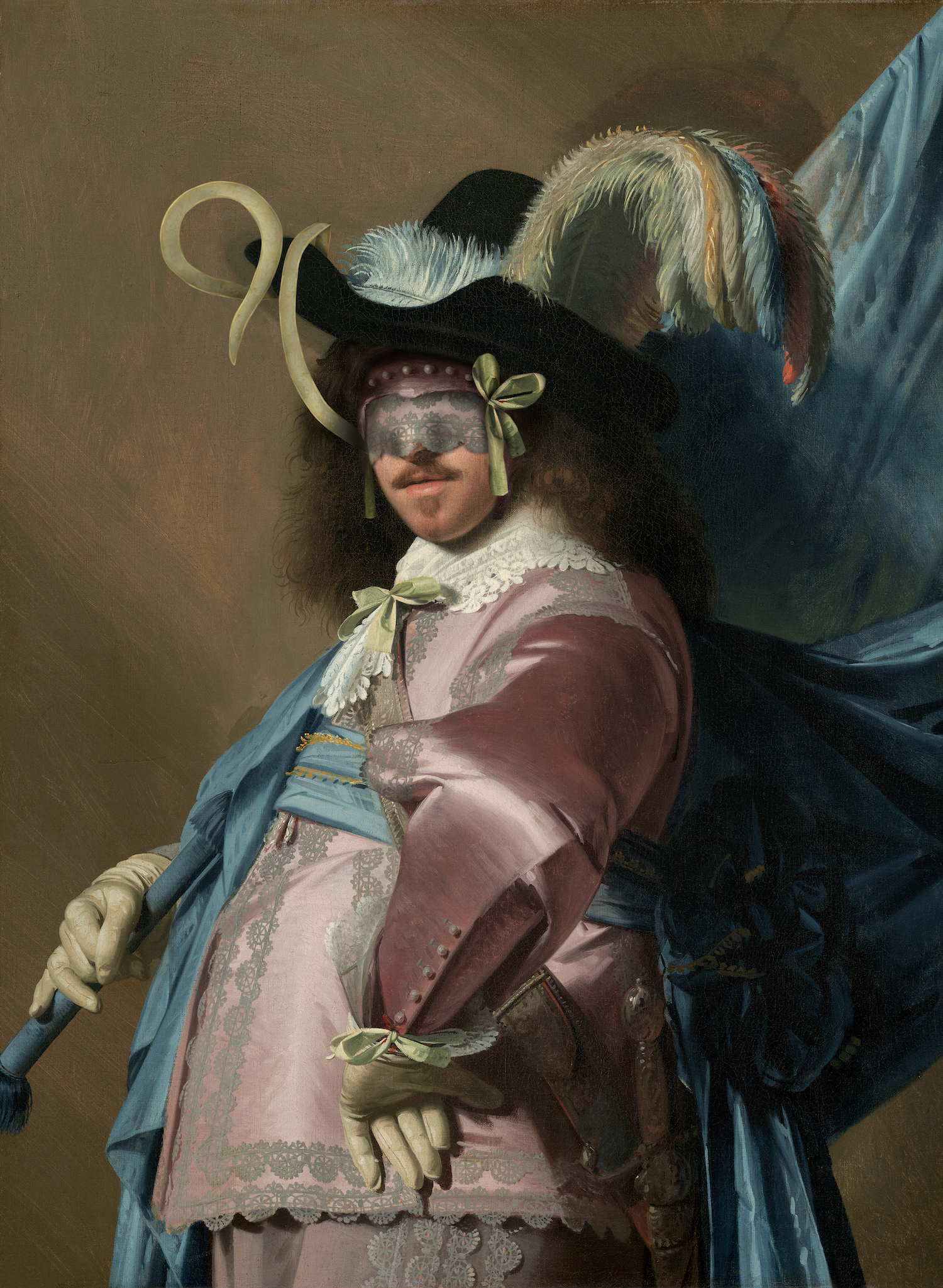
Tell us about some of your favorite collaborations.
I was invited to collaborate with Christie’s for their Classics Week in 2020. They invited me to work with paintings and busts that were being auctioned during the event. It was exciting to work with pieces that would end up in private collections. It’s likely that these works will not surface at the auction house for at least a generation or two, so to have permission to work with them was a treat. Most of the images I source are from museums. On occasion, I am invited to work with pieces from private collections.
The collaboration I did with the Department of Culture in Pavia, Italy is dear to my heart. They not only displayed 28 of my Hidden Portraits but proposed that I rework some paintings owned by the Civic Museums, some never exhibited to the public and kept in the deposits. It was an opportunity for the visitors to observe the originals for the first time alongside my contemporary reimaginings. I hope to do more collaborations of this kind in the future. Audiences seem to be delighted to view both the original portrait and the hidden portrait next to each other.
My latest collaboration was with Hamish Bowles and the Victoria & Albert Museum. Hamish has recently become the editor and chief of World of Interiors Magazine. For his inaugural edition, he included an article about the “Fashioning Masculinities” exhibition at the V&A and asked if I could work with a piece that would be in the exhibit. The painting I worked with was a full-length portrait of Charles Coote, 1st Earl of Bellomont. The painting itself is larger than life in essence and in actual size! That I was invited by Hamish, and grated access to this work by the V&A has certainly been a highlight this year.
When did you mint your first NFT? What platform did you choose and why? My first NFTs were minted on Super Rare. I was grateful to be accepted fairly quickly and it seemed like a platform that was focused on supporting artists and art, and not crowded with 10k projects. However, since then I have also minted editions on OpenSea using my own Manifold contract which gives me more control and that I like very much.
Can you tell us one thing you cannot live without? (and why)
This may sound strange…but I can not exist without my work. Now, of course, I might prefer to work at a table in Italy rather than in my studio, but without my work, somehow “I” wouldn’t work. Crazy enough, it would be unbearable for me to be lying on a beach doing nothing at all.
Who is your favorite artist(s) (Non-NFT)? What about their style resonates with you
A large part of my work involves the interpretation of historical art. I’m often asked this question, and I really don’t have a favorite at all. I don’t function that way. There is room in my heart for so many artists, for very different reasons. I can love the pathos of the 19th century just as much as the purity of the Renaissance. I can’t really rank any artist – living or dead.
Who is your favorite NFT artist? What makes this artist unique?
I can only quote my previous answer. I simply can’t rank other artists.
Perhaps the difference in how I view classical art compared to art in the NFT space is only that I find the approaches in the NFT art most exciting – which of course have nothing to do with me. These new artistic approaches surprise and delight me. Many times I’ve never seen art approached or created in a particular way – it enriches my visual world very much.
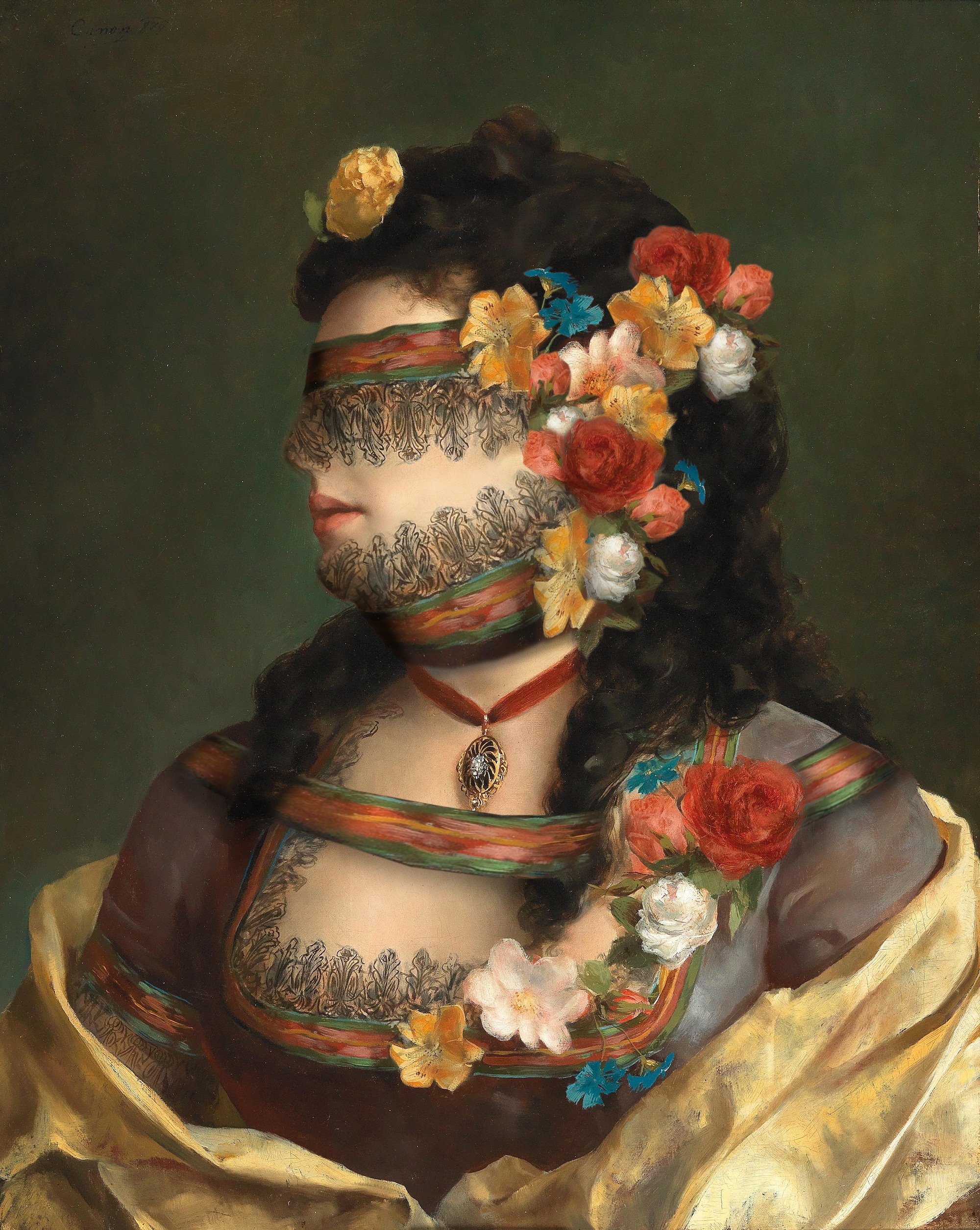
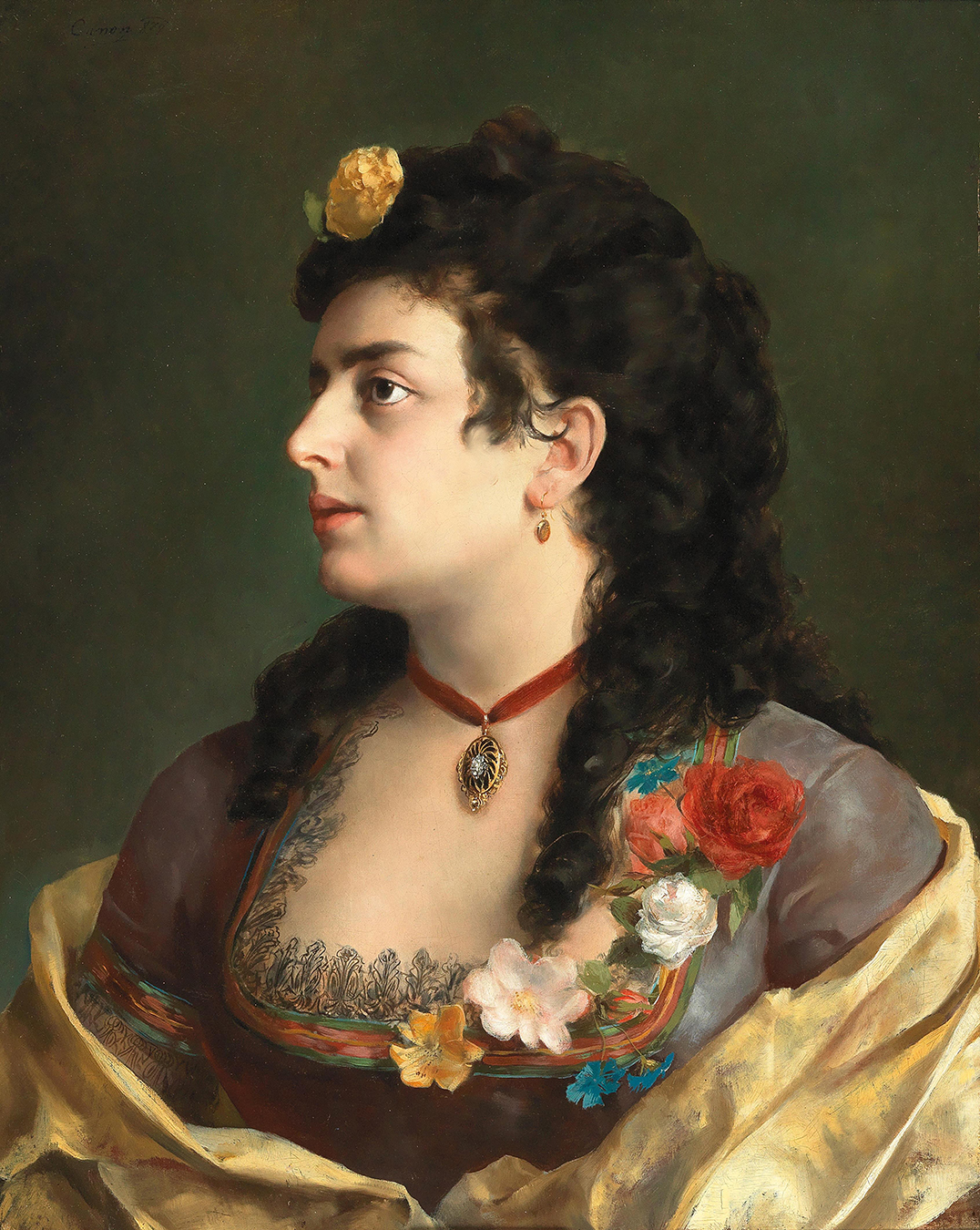
What’s your intention in obscuring the sitters’ faces?
As my collection title suggests, the subjects in my portraits are indeed hidden. Covering the face of a portrait is an instantly subversive act. With the face partly obscured I am able to use the overall composition as my narrative device and draw the audience’s attention to the sitter’s attire and pose, and reveal their connections with concepts of identity, gender, and social status.
When I form a fluffy hat out of a ruff that originally symbolized wealth and a sense of fashion, I can expose exaggerated privilege in the relations of power. Long-curled wigs, a trademark of European rulers, I can double curl for curl until they look so pompous that the faces of the powerful disappear behind them. Jewelry or silk ribbons that originally symbolized wealth and status, I can wrap tightly around a female subject to draw attention to the restrictive and suffocating norms of an elite society. It is my desire, through my Hidden Portraits, to raise new thoughts through old works. Essentially, I aim to contextualize art through art.
It excites me that my works offer a kind of bridge between historical art and contemporary audience. This contemporary audience seems to come from a variety of starting points. Viewers with interests in fashion, technology, and historical and contemporary art all seem to arrive at my Hidden Portraits, making them a true cross-genre collection.
What made you pursue NFT art?
At a certain point, NFTs just emerged as a topic of discussion. It was one of those topics that everyone had an opinion about but couldn’t explain with an ounce of credibility. However, I was curious and wanted to know more. Also, I was contacted by a collector wondering if I sold NFTs. I was pointed in the right direction and here I am.
If you could travel anywhere in the world where would you go? Why this location?
I traveled to Tel Aviv annually for 15 years in the early 2000s and it remains one of my favorite places. However, these days I find myself longing more for Italy. I love being in other places, but I do hate getting there. Flights, train travel, and car trips are not my thing. I eagerly wait to be beamed to beautiful places soon.
What are your other passions besides art? Why?
My second loves are opera and ballet. They are worlds that completely absorb me. My senses are overwhelmed, and they take me out of my everyday life into a completely different reality not focussed on comprehensibility, but on artistic invention instead.
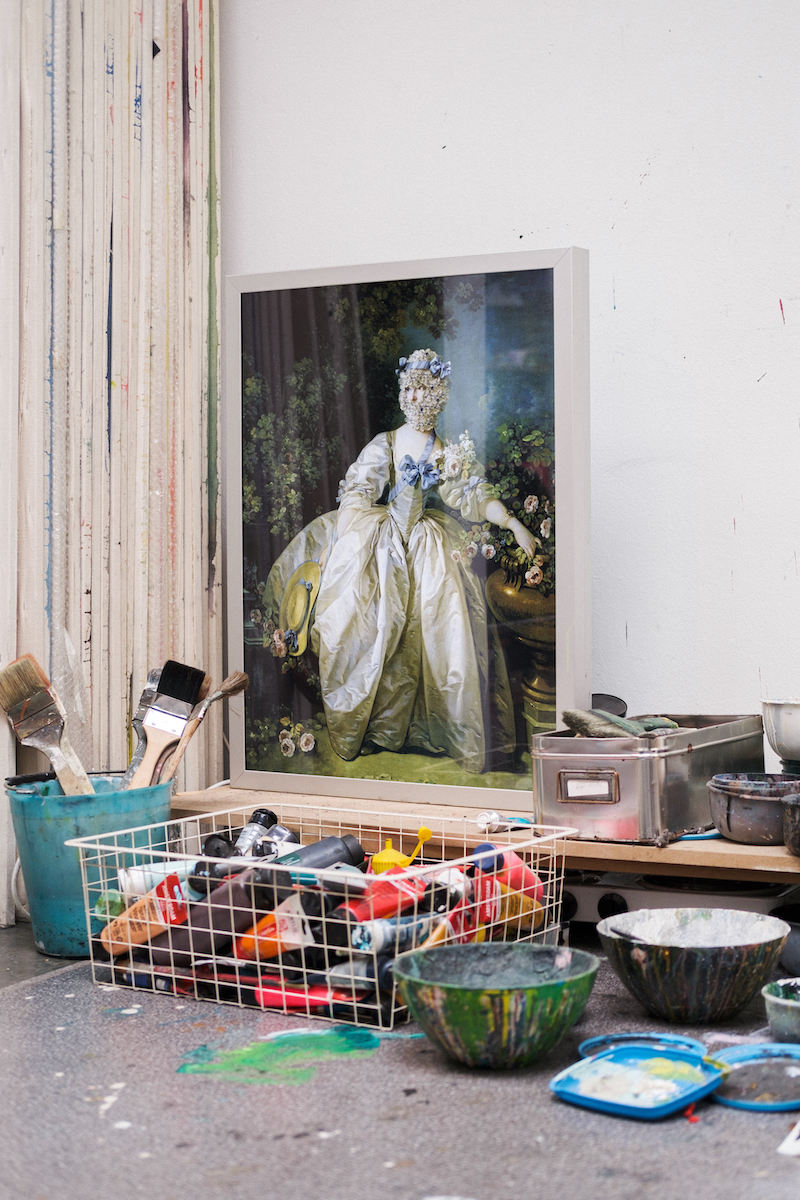
Do you make other forms of art?
I paint, I draw, and I work with digital media…puh! That’s enough for an artist’s life with only 24 hours in a day.
Are you self-taught or trained?
Both. I studied painting at the famous art academy in Düsseldorf. However, everything related to digital technology such as Photoshop and similar, I taught myself. Learning how to research, being willing to try something new and fail, and being endlessly curious about finding new solutions, were all essential parts of my academic training. Because of that training, I have inner structures and confidence that allow me to explore new areas.
How did you come up with your specific style?
That’s actually hard to answer. My art is simply an expression of me as a person – very personal, very individual, almost intimate. There is no plan behind it, no strategy. I just try to be authentic and honest – that’s what makes one unique, I guess.
How has your style evolved over the years?
I think progression comes naturally when you work a lot and go through the world with your eyes wide open. And of course, getting older does change a lot. I don’t consciously think about what is different now, but in retrospect, in evaluating everything that lies behind me, I notice that I approach some things differently today. My style hasn’t changed that much, but there is perhaps a greater depth. My younger works were wilder, which I also love. In addition, of course, my skills are growing, and technology is evolving, which both open up new possibilities.
What is coming in the near future?
I am working on several projects, and exhibitions in museums, in autumn there will be a talk about my work at ArtHistory Week in the UK and I’m also working on a concept for a book. My website is always up to date with my latest news and events, in case readers want to stay up to date.
If you could collaborate with one artist who would it be? (and why)
This is probably not the answer you’re looking for, especially since he’s been dead for almost 350 years, but I would love to work with Jan Vermeer. I can’t think of any artist whose work I admire more, and also don’t understand at the same time. Otherwise, I am very curious and open to many things.
I also have a great love of fashion. I’ve recently been approached to collaborate in this medium which interests me very much. Perhaps soon.
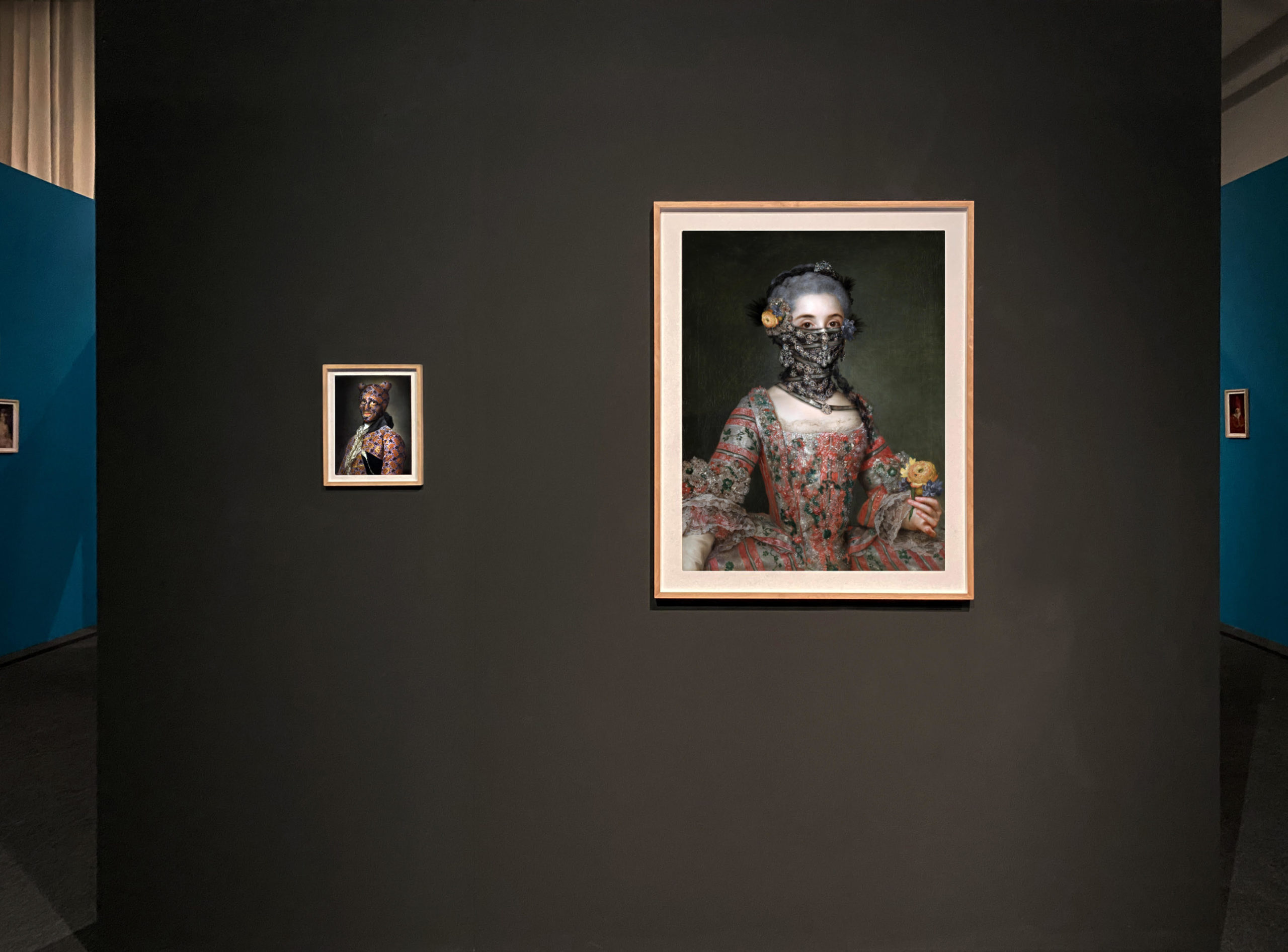
The post Volker Hermes NFT Interview appeared first on NFT CULTURE.
Si quiere puede hacernos una donación por el trabajo que hacemos, lo apreciaremos mucho.
Direcciones de Billetera:
- BTC: 14xsuQRtT3Abek4zgDWZxJXs9VRdwxyPUS
- USDT: TQmV9FyrcpeaZMro3M1yeEHnNjv7xKZDNe
- BNB: 0x2fdb9034507b6d505d351a6f59d877040d0edb0f
- DOGE: D5SZesmFQGYVkE5trYYLF8hNPBgXgYcmrx
También puede seguirnos en nuestras Redes sociales para mantenerse al tanto de los últimos post de la web:
- Telegram
Disclaimer: En Cryptoshitcompra.com no nos hacemos responsables de ninguna inversión de ningún visitante, nosotros simplemente damos información sobre Tokens, juegos NFT y criptomonedas, no recomendamos inversiones

